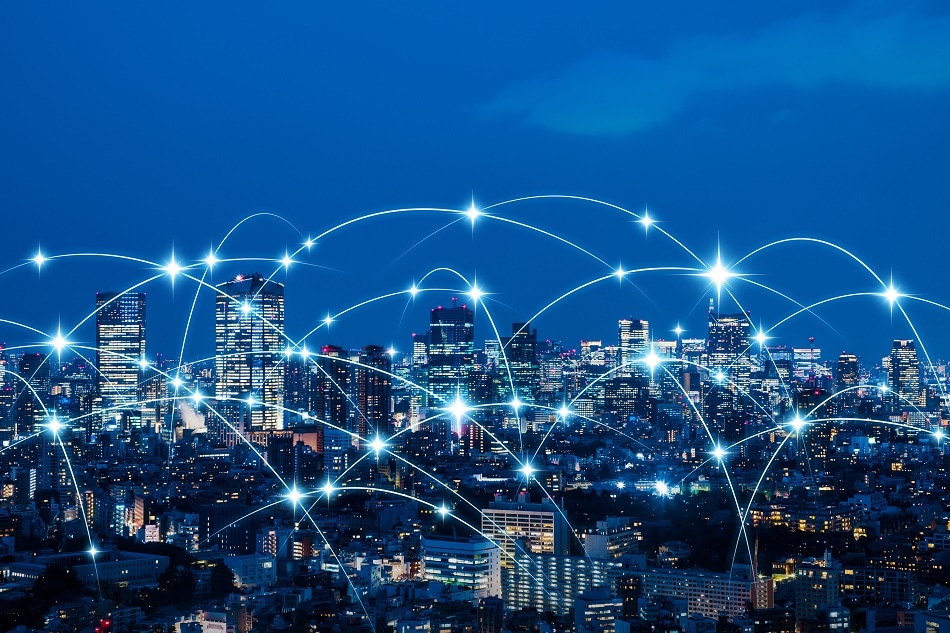
Image Credit: metamorworks/Shutterstock.com
Microsoft and Nokia made an announcement this week that they will collaborate to accelerate a strategic multi-industry evolution, which includes innovative solutions for cloud storage, artificial intelligence (AI), and the Internet of Things (IoT).
The combination of Microsoft’s Azure cloud service and Nokia’s mission-critical facilities and products will give them a cutting-edge when it comes to accelerating industry 4.0 for communication service providers (CSPs).
The combination of these two industry giants will see the companies propel industrial automation and digitalization which will allow CSPs to offer a new range of service to enterprise clients. This is driven by the unique combination of Nokia’s LTE/5G-ready private wireless solutions, IP, SD-WAN and IoT connectivity with Microsoft’s Azure IoT, AI, and Machine Learning solutions. This impressive portfolio of products and services could spark an automation revolution.
Bringing together Microsoft’s expertise in intelligent cloud solutions and Nokia’s strength in building business and mission-critical networks will unlock new connectivity and automation scenarios.
Jason Zander, Executive Vice President, Microsoft Azure
Taking advantage of this partnership is the organization British Telecoms (BT) who has reportedly signed up to become the world’s first communications service provider to offer a new managed service to its enterprise clients that merges Nokia SD-WAN with Microsoft’s Azure cloud solutions.
Over the years Microsoft has invested billions in various cloud-based platforms and services for businesses as well as pursing a tenacious development of its machine learning and AI capabilities. What’s more is that Microsoft’s continued commitment to the IoT through its Azure cloud solutions give Nokia a platform to expand its own technological advances and internet connectivity. Both companies have announced that the aim is to host Nokia’s virtualization and automation solutions on Azure.
Some of the target industries for the companies include transportation and healthcare as well as distribution centers and warehouse operations. Furthermore, the companies hope that they will be able to develop a platform that can support the smart city’s digital ecosystem.
Both Microsoft and Nokia believe their union will stimulate automation and digital transformation while harnessing the power of industry 4.0.
We are thrilled to unite Nokia’s mission-critical networks with Microsoft’s cloud solutions. Together, we will accelerate the digital transformation journey towards Industry 4.0, driving economic growth and productivity for both enterprises and service providers.
Kathrin Buvac, President, Nokia Enterprise
However, this is not the first time both Microsoft and Nokia have partnered as in the earlier part of this decade both companies collaborated in the smartphone market. Nokia was the primary manufacturer of a smartphone running on a Windows operating system. Then in 2014 Microsoft made a full acquisition of Nokia’s smartphone business in order to meet the challenges that Apple’s iOS and Android devices presented.
However, with iOS and Android making up 96.1 percent of the market things hadn’t quite gone to plan for Microsoft. This led to Microsoft later exiting the acquisition deal which left thousands of Nokia employees without a job. Now, in 2019 Microsoft’s Surface Duo smartphone is an Android based device but the company still struggles to find a foothold in this market.
Thus, the question is asked, will the Microsoft/Nokia collaboration prove to be successful this time around? Recently Barnard Marr, Forbes contributor, predicted 7 technology trends that will transform telecommunications in 2020, including 5G, AI, and IoT. Microsoft has already established itself as a leader in cloud based solutions with Azure and Nokia has reinvented itself in the telecoms market now competing with Huawei and Ericsson. As Industry 4.0 is built on the foundations of cloud-based solutions, AI, IoT and 5G the new strategic partnership could well pay off.
Disclaimer: The views expressed here are those of the author expressed in their private capacity and do not necessarily represent the views of AZoM.com Limited T/A AZoNetwork the owner and operator of this website. This disclaimer forms part of the Terms and conditions of use of this website.